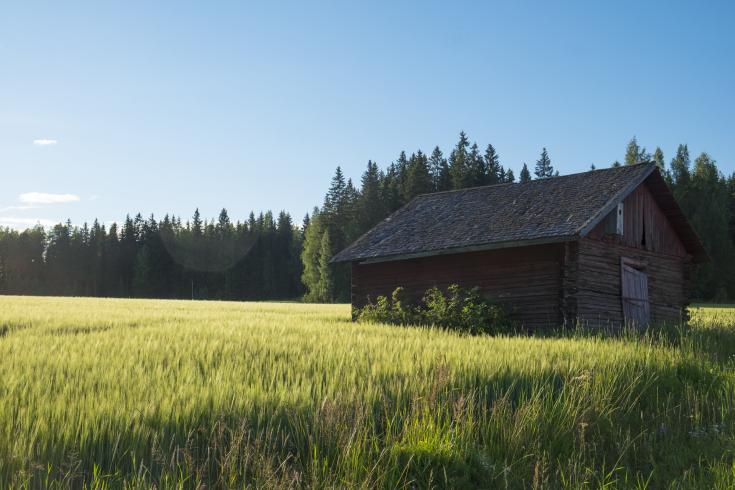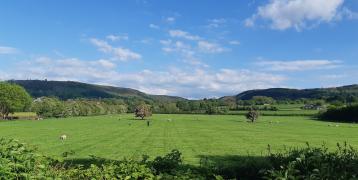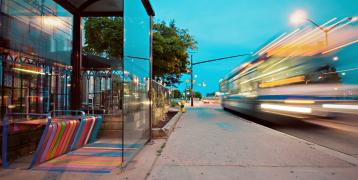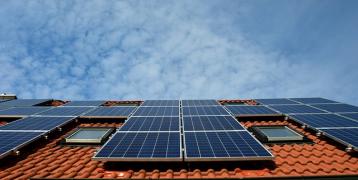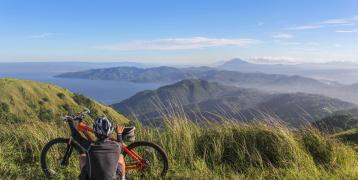How to support the rural green transition
On 13 September 2022, the Policy Learning Platform held a webinar on supporting the rural green transition. It explored the specific challenges and opportunities for the low-carbon transition in rural areas, taking into account energy, mobility and links with agriculture and environmental management.
Rural areas make a unique and important contribution to our economy and way of life but are often left out of low-carbon planning and strategies. However, their transition must be supported considering their distinct challenges such as declining and aging populations, fewer economic and social opportunities, and low population densities which make infrastructure and service provision a challenge.
The green transition can help to bring many benefits to rural areas and tackle these challenges, with new service provision and socio-economic and environmental practices. The transition will involve tackling a wide number of areas, including renewable energy and energy efficiency, waste management, mobility, sustainable agri-food, and ecosystem service support.
These topics have been explored by a number of Interreg Europe projects, and this webinar featured presentations from IRENES and LAST MILE, as well as the Interreg MED Greenhouses project, and the Horizon 2020 BE-COOP project.
Webinar agenda
Moderation and concept by Katharina Krell and Simon Hunkin, Thematic Experts for Low-carbon economy.
00:08:25 Keynote presentation by Linda Zardo on the role of rural areas in the low-carbon economy
00:22:32 Q&A: Did you asses these multi-municipality SECAPs in the IRENES project?
00:24:07 Q&A: You talked about depopulation and how the COVID pandemic caused people to appreciate the green areas again and how the digital tools can support remote work, do you think that these trends can contribute to the repopulation of rural areas?
00:25:53 Presentation by Manolis Karampinis on support tools for the bioenergy communities
00:39:24 Q&A: Which are the steps to start creating an energy community in rural areas?
00:41:21 Presentation by Alexandros Papachatzis on green growth through the capitalisation of innovative greenhouses
00:55:20 Presentation by Manfred Mair on East Tyrol rural and small town mobility
01:07:17 Q&A: What is the motivation for the volunteers to drive a municipality taxi three days a week?
Panel discussion
01:09:20 Q&A: What is the role of regional and local policy makers in promoting and accelerating the rural green transition in the areas of energy, mobility and agriculture?
01:17:58 Q&A: Is there any need for data or evidence to support local and regional policy making in the areas?
Presentations
Keynote presentation by Linda Zardo on the role of rural areas in the low-carbon transition
Keynote presentation by Linda Zardo on the role of rural areas in the low-carbon transition
Presentation by Manolis Karampinis on supporting tools for bioenergy communities
Presentation by Manolis Karampinis on supporting tools for bioenergy communities
Presentation by Alexandros Papachatzis on green growth through the capitalisation of innovative greenhouses
Presentation by Alexandros Papachatzis on green growth through the capitalisation of innovative greenhouses
Presentation by Manfred Mair on East Tyrol rural and small town mobility
Presentation by Manfred Mair on East Tyrol rural and small town mobility
Introduction presentation by Simon Hunkin and Katharina Krell
Introduction presentation by Simon Hunkin and Katharina Krell
Key learnings
From this webinar, we can highlight some key insights for local and regional policy-makers:
- Rural regions contain natural resources, biodiversity and ecosystem services required to sustain our lives, and there is an urgent need to reduce emissions from their industries (agri-food, for example), as well as respond to climate change and droughts which threaten these industries.
The transition requires tackling land-use, ecosystem services, renewable energy, and decarbonised transport, as well as supporting the circular and bio-economy. There is often a trade-off that needs to be finely balanced, for example, food or biomass growth, solar and wind farms or unblemished landscapes.
- Rural areas, however, have significant opportunities in the low-carbon transition. Specifically, they have significant resource and space availability needed for bioenergy, hydropower, and wind energy. But they also often have a strong sense of tradition, self-sufficiency, and community, which can enable initiatives such as renewable energy co-operatives.
- Rural areas need tailored approaches that take account of both their challenges and their strengths, while also respecting ecological boundaries. The approaches taken in urban areas are not directly transferable to rural areas, where conditions and resources are different. A collaborative and place-based approach reflecting local interests, circumstances and location can accelerate the implementation of low-carbon strategies.
- Very remote areas face specific challenges of insufficient local services, poor accessibility and connectivity, and poor economic prospects. Low-carbon interventions can help to improve quality of life and keep these areas vibrant to prevent population decline.
- Public authorities in rural areas often lack the capacity to develop and implement low-carbon strategies – capacity building, knowledge exchange and awareness raising are therefore essential. Integrated strategies (such as SECAPs) for multiple municipalities can achieve high impact by allowing municipalities to pool resources in the development, implementation, and monitoring of actions.
- Marketing and communication are also needed towards citizens, to make them aware of available opportunities and to change behaviour. This can also include participatory planning to ensure that services are really reaching the needs of citizens.
- Renewable energy communities, such as the Energy Community of Karditsa (ESEK), are excellent ways to involve citizens in the energy transition, and rural areas have particular strengths for such initiatives, including space and access to renewable resources. ESEK, launched in 2012 to make use of local residues, has been supported by the BE-COOP project to expand its activities to use other biomass resources for new products and services.
The project has developed a self-assessment tool for other regions to assess the current status and future potential of community bioenergy, an e-market for connecting supply chain stakeholders, a Knowledge Exchange Platform, and a toolkit of other available tools.
- Agriculture is a highly resource-intensive industry, becoming ever more intensive as food demand increases. Greenhouses, which are widely used, are often fossil-fuel powered to maintain temperatures, but also use a lot of water and other resources. The MED Greenhouse project set out to transfer innovative greenhouses in the Mediterranean region by developing recommendations to boost investment, establishing an Agricultural Innovative Cluster, and supporting knowledge transfer.
The project led to the construction of new, sustainable greenhouses with natural heating, cooling and hydroponics that significantly increased produced yield and reduced carbon emissions.
- Low-carbon transport is a particular challenge for rural areas. Inhabitants often feel that car ownership is a requirement, as sparse populations mean public transport companies must run limited services. However, many regions are exploring on-demand transport services, as well as low-carbon last mile solutions to get from transport hubs.
East Tirol in Austria has developed a comprehensive package of interventions, including demand-responsive bus routes, e-carsharing, buses for touristic activities, e-bike rental and a municipal taxi, driven by volunteers to encourage reduced use of private vehicles. The region is currently integrating solutions into a single mobility platform as a first step towards Mobility as a Service, containing all information on available services.
- Public authorities should take advantage of opportunities to learn from other regions which have already begun the transition, through Interreg Europe projects and the Policy Learning Platform which can offer on-demand expert support through peer reviews and matchmakings.
- As well as IRENES and LAST MILE, a number of Interreg Europe projects have worked on the rural transition, including AgroRES, BIO4ECO, DeCarb, DESTI-SMART and RESOR. These projects, amongst others, have informed Policy Learning Platform activities, including:

